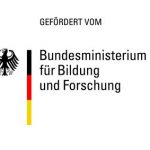Public projects
i-Cube
Innovative imaging and intervention in early AMD
Age-related macular degeneration (AMD) can lead to complete vision loss without therapy. Visible symptoms of AMD typically do not occur until the age of 50 years. Currently, about 4.5 million people in Germany suffer from AMD. In 2020, there will be an estimated 6 million patients due to demographic trends. This will make AMD the second most common disease after dementia. The burden on the health system is immense.
So far, a diagnosis of AMD is only possible when the disease is already very advanced and the patient perceives significant vision deterioration. The ophthalmologist can recognize the damage to the fundus at this time and initiate treatment. At this stage, an improvement in vision is almost impossible. The therapeutic success is based at best on a stagnation of the disease.
In order to be able to make an early diagnosis, it is important to better understand the basic development of AMD and to enable its identification before irreversible damage occurs in the eye. In the newly launched joint project “Innovative Imaging & Intervention in early AMD (I-Cube)”, a procedure is being developed that makes it possible to detect changes to the retina at an early stage.
Mittels neu entwickelter Laserverfahren soll eine spezifische Zellschicht der Netzhaut zur Regeneration angeregt werden, um Schädigungen oder den einsetzenden Verlust der Sehfähigkeit zu verhindern. In dem Projekt greifen Grundlagenforschung, technische Entwicklung und klinische Erprobung eng ineinander, so dass neue Erkenntnisse zur Frühdiagnostik, Therapie und Therapieüberwachung der AMD resultieren können.
The basic research of the partners University of Lübeck, Institute of Biomedical Optics (BMO) and Department of Ophthalmology of the Christian-Albrechts-University Kiel, University Hospital Schleswig-Holstein, Campus Kiel deals with the collection of early indicators for AMD and the determination of cell biological basics for optimal therapeutic radiation.
The applied research and device development is the responsibility of the Medical Laser Center Lübeck within the framework of the realization of various laser beam modalities. The system development (laser, OCT) is taken over by the partners Carl Zeiss AG, Thorlabs GmbH and RS Medizintechnik GmbH. The Clinic for Ophthalmology, Campus Kiel will carry out initial studies whose results contribute to the analysis and improvement of the technical components.
The I-Cube project has a term of 36 months. The joint project is funded by the Federal Ministry of Education and Research (BMBF) with just under four million euros in the “Framework Program Health Research Germany, Action Field Health Economy” as an initiative project.

